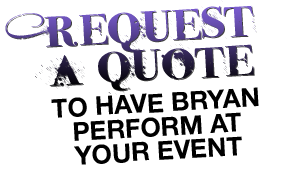1. Sound Advice
A PA system that is powerful enough to fill the room with clear sound is necessary. Don’t rely on overhead speakers in the ceiling for sound. Generally, they provide a sound that is ‘tinny’ and are not strong enough to do the job effectively. Having a wired mic is preferable to a wireless mic. Wired mics don’t have problems with interference, and they don’t have batteries that can go dead at the wrong time. If you don’t have access to a good PA system, don’t fret. One can be provided at a reasonable price.
2. Light the Show
The proper lighting can really go a long way towards making your event successful. You want a light that is focusing on the stage. A spotlight is preferred. It allows the audience to see the performer clearly. The performance is much more effective if the audience can see facial expressions, and body movements. If you dim the surrounding lights, it focuses attention on the performer. Just as with the sound system, if you don’t have the proper lighting at your venue, a proper spotlight can be provided at a reasonable price.
3. Dinner
The show works most effectively with distractions kept to a minimum. So, we have found that it is best to start the show after dessert has been served and the plates cleared. If you have awards to present, consider having the entertainment before the awards. The fresher the audience, the better for the entertainer, and the more successful the show will be. Plus the show will get the crowd energized and in a good mood. A long, drawn out awards ceremony tends to tire people out, and makes them a less enthusiastic audience.
4. Seating Setup
The closer to the audience that the performer can be, the better. Seat people right up to the stage, if you can. Performers feed off the energy of the audience. Having the audience close to the stage creates an intimacy that makes the show much better. Set the stage along the room’s longest wall. Don’t put the stage at end of a long room. Again, you want all the audience members as close to the stage as comfortably possible. If a dance floor is required for dancing after the comedy show, consider breaking down tables and creating a dance floor after the show is over.
5. Face the stage
Make it as easy as possible for the audience members to see the stage. Having audience members who have their back to the stage, who have to turn their chairs around, or strain sideways to see the stage makes it difficult for them to enjoy the show. Keep this in mind as you set up your seating arrangement.
6. Introductions
A clear and respectful introduction gives credibility to a performer. Often, having the President of the company, or some other key influencer within the company, making the introduction adds credibility to the performer, and demands the audience’s attention and respect. That can go a long way towards creating a good kick off for the show. Don’t have someone get up and say something like, “Hey, I’m not sure who this guy is, but he’s supposed to make us laugh. Let’s see if he is as funny as Phil.” That is not getting the show off on the right foot. If you’d like help, I’d be more than happy to provide a proper introduction.
7. Clear the Air
If the comedy show is going to follow a heavy, or sensitive subject, have a brief intermission to allow the atmosphere to lighten up. Or consider bringing up this subject matter after the show is over. Then, people will be in a better mood and will be better able to absorb difficult or bad news.
8. Mood music
Having background music before a show, or during dinner, can create a pleasant environment for the show. Sometimes, matching the music to the mood of the crowd is beneficial. If they are low energy, some up beat music might be appropriate. If the audience is a bit on the rowdy side some more calming music might make sense. Music can always set a mood, both before and after a show.
9. Showtime
It is best to have the performance start as close to the scheduled time as possible. If the dinner is running long, it is best to wait until dinner is done and plates are cleared. But try to avoid delaying a show too long. You don’t want a show scheduled to start at 8 to finally start at 9:20. It means the audience can be tired, especially if they have spent all day in meetings, or if they simply worked all day before your event started. The fresher the audience the better.
10. Have Fun
Remember that comedy is fun. You have hired a professional who will give your audience a wonderful experience. Sit back, and enjoy the show yourself. Life is too short to ignore moments to laugh.





